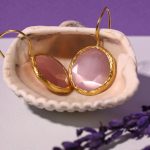Introduction to Ethical Fashion
Ethical fashion has emerged as a crucial trend in today’s consumer landscape, emphasising the intersection of style with sustainability and moral considerations. In a world increasingly aware of environmental and social issues, ethical fashion prioritises responsible production processes, fair trade practices, and social responsibility.
The rise in ethical fashion aligns with a broader trend towards sustainability within the fashion industry. It focuses on reducing environmental impact through mindful sourcing of materials and limiting waste in production. Ethical brands adhere to principles such as recycling and using organic fabrics to champion eco-friendly practices. Fair trade ensures that those involved in manufacturing receive fair compensation, enhancing community welfare.
In the same genre : Ultimate Guide to White Sneaker Maintenance: Top Tips for Tackling the UK’s Muddy Terrain;233Upgrade Your Winter Wardrobe: Master Sustainable Wool Fashion with Expert Tips
Notably, UK millennials are leading this shift by showing a heightened interest in supporting ethical brands. Their choices reflect a growing demand for accountability and transparency from fashion companies, prompting many brands to adopt more sustainable and socially responsible measures.
With conscious consumerism on the rise, ethical fashion is not just a fleeting trend but a transformative movement impacting both the industry and broader society. Its principles of sustainability, fairness and responsibility are reshaping how we engage with fashion, fostering a more equitable future.
In the same genre : Discovering Hidden Gems: Expert Tips for Finding Unforgettable Treasures at London’s Vintage Markets
Top Ethical Fashion Brands in the UK
Exploring the best ethical fashion brands in the UK reveals a landscape dedicated to sustainable and fair practices. These brands offer an inspiring blend of style and social responsibility, making them leaders in ethical choices within the fashion industry.
Brand Overview
Each of these UK brands boasts a unique history and mission. With a commitment to maintaining ethical practices, they often focus on using sustainable materials and ensuring fair trade. Some brands have achieved prestigious certifications, underscoring their dedication to ethical standards. Notably, UK brands such as People Tree are pioneers in organic materials and craftsmanship, emphasizing transparency and social empowerment.
Product Range
When it comes to products, these brands offer a diverse selection, including clothing, accessories, and footwear. Their lines often feature organic materials, limited editions, and innovative designs catering to environmentally conscious consumers. While price points vary, many brands strive for accessibility, ensuring that sustainable fashion is available to a broad audience.
Customer Testimonials and Ratings
Customers frequently praise these brands for their quality and ethical commitments. Many have received high ratings from ethical fashion organizations, with case studies highlighting their positive impacts on both the environment and communities. These successes illustrate the tangible benefits of choosing fashion that aligns with one’s values.
The Environmental Impact of Ethical Fashion
In the fashion industry, traditional practices have long been associated with a significant environmental footprint. These methods often rely on resource-intensive production, resulting in extensive waste and pollution. However, ethical fashion brands are transforming this narrative by embracing eco-friendly practices that promote environmental sustainability.
These brands implement various strategies to minimise their impact. A key approach is the use of sustainable materials. By opting for organic cotton or recycled fabrics, they significantly reduce the water and energy consumption typically required in garment production. Many brands also incorporate biodegradable components, ensuring that their products leave a minimal trace.
Moreover, ethical brands are pioneering waste reduction through innovative techniques. For example, some employ zero-waste design principles, creating patterns that maximise fabric use. Such practices not only conserve resources but also reduce landfill contributions.
Several case studies illustrate the success of these initiatives. For instance, brands like Stella McCartney have reported substantial reductions in their carbon footprint by integrating sustainable materials and energy-efficient processes. These efforts showcase the potential of ethical fashion to lead the industry towards a more sustainable future, benefitting both the planet and society as a whole.
The Social Impact of Ethical Fashion
Ethical fashion champions not only environmental sustainability but also profound social responsibility, which underscores its transformative power. The cornerstone of this movement is fair trade practices. These ensure that artisans and workers involved in the production process receive fair compensation and work under humane conditions. Fair trade is vital as it fosters economic stability and elevates living standards within communities, presenting a model of ethical collaboration in the fashion industry.
Community empowerment is a tangible byproduct of these practices. Ethical brands often invest back into the communities, supporting educational initiatives, health services, and infrastructure development. This strengthens the overall social fabric, as empowered communities contribute positively to the economic and social spheres.
Several ethical brands have made notable contributions toward community upliftment. For instance, brands focusing on fair trade often partner with local artisans, ensuring traditional craftsmanship is preserved and valued. Such collaborations not only respect cultural heritage but also promote sustainable economic growth.
Through these actions, ethical fashion brands leave a lasting, positive footprint, proving that the industry can operate in harmony with both people and planet. These efforts demonstrate that supporting ethical fashion goes beyond style—it is a commitment to nurturing humanity and shared prosperity.
How to Choose Ethical Fashion Brands
Selecting ethical brands in the fashion industry requires consumers to carefully assess various factors related to sustainability and community impact. A primary consideration is the transparency of the brand’s supply chain, ensuring that ethical practices are upheld from production to sale. Look for certifications like Fair Trade or GOTS (Global Organic Textile Standard) to verify adherence to ethical standards.
When evaluating potential purchases, scrutinise the materials used in products. Opting for items crafted from organic, recycled, or upcycled materials not only supports environmental sustainability but also reduces the overall carbon footprint. Brands that openly disclose their material sourcing often demonstrate a commitment to ethical production.
Informed consumers can harness resources like Good on You, an app dedicated to rating fashion brands on their ethics, to guide their choices. Such tools offer comprehensive insights into the social responsibility and sustainability of hundreds of brands, enabling ethical shopping.
By prioritising these elements, individuals can align their fashion choices with their values, supporting brands that contribute positively to both society and the planet. Conscious shopping not only supports those pioneering change but also empowers consumers to be a part of the ethical fashion movement.
Future Trends in Ethical Fashion
As we gaze into the future of fashion, ethical trends are set to dominate the industry. This shift is largely spurred by demands for sustainability innovation. Brands increasingly focus on harnessing technology to advance eco-friendly practices. Future developments might see enhanced sustainability through cutting-edge materials, such as biodegradable textiles or fabrics grown in labs, pushing the boundaries of what’s possible in fashion.
Ethical trends are also leaning towards circular fashion, a model that emphasises repairability, reuse, and recycling, drastically reducing waste. This approach will likely gain traction as consumers become more committed to eco-conscious living. The role of technology, especially in supply chain transparency, cannot be overstated. Blockchains, for instance, offer an innovative way to ensure ethical sourcing, making it easier for customers to track a product’s journey from its origin to their wardrobe.
Moreover, the future of fashion anticipates enhanced consumer engagement where brands offer platforms for users to voice their expectations for ethical practices. This feedback loop is vital as companies strive to align with the future of fashion – a more sustainable and socially responsible paradigm driven by informed consumer behaviour.








